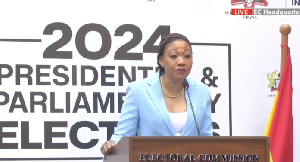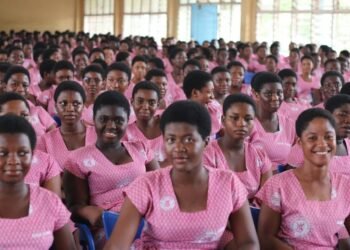Ghana has had 7 successful presidential elections since its return to democratic rule in 1992 before the 2020 elections. West Africa’s 2nd largest economy is also seen as a beacon of democracy in Africa and the world at large; a reputation the country has worked so hard to earn, and which must be protected at all costs.
Just as has been predicted by many people before December 7, election 2020 was keenly contested. Undoubtedly, it was once again a contest between two archrivals who are familiar with each other in the political landscape of Ghana; H.E. Nana Addo Dankwa Akufo-Addo of the NNP; now president-elect and former president John Dramani Mahama (JM) of the opposition NDC.
Both of these personalities have served as parliamentarians and ministers of state under different administrations for the two major political parties.
JM served as a Member of Parliament (MP) for the Bole-Bamboi Constituency in the Northern Region on the ticket of the NDC from1996 to 2004. He also served as Deputy Minister of Communications from April 1997 to November 1998 and then served as the substantive Minister of Communications from November 1998 to January 2001.
On the other hand, H.E. Nana Akufo Addo served as Attorney General from 2001 to 2003 and as Minister for Foreign Affairs from 2003 to 2007 under the Kufuor-led administration. He was also an MP for the Abuakwa Constituency between 1996 to 2004.
However, the first major contest between these two politicians for the highest office of the land was in the 2012 elections which were won by John Dramani Mahama. JM got 5,574,761 votes representing 50.7% of total valid votes cast whilst H.E. Akufo Addo got 5,248,898 representing 47.7%. The NPP however, did not concede defeat and challenged the results in the supreme court but could not overturn the results.

After four years, and as mandated by the 1992 constitution of the Republic of Ghana, the second contest was staged in 2016, which was swift revenge and a walkover victory for H.E. Nana Addo Dankwa Akufo-Addo who accumulated 53.85% of total valid votes cast.
The recent election was the third and final contest between these two renowned politicians. The EC set 24 hours to declare the results. A target that was described by many as overly ambitious. The EC couldn’t meet this deadline and had to wait until Wednesday evening to declare the results.
The Chairman of the Electoral Commission, Mrs. Jean Mensa on Wednesday, December 9, declared H.E. Nana Akufo-Addo as the president-elect with 51.3% of the total valid votes cast whilst JM received 47.3%.

Even after the delays in the declaration of the results, the EC on Thursday issued a statement admitting an error in the declared results.
The Electoral Commission has clarified that its Chairperson, Jean Mensa, “inadvertently used 13,433,573 as the total valid votes cast.”
“The total valid votes cast is 13,119,460. This does not change the percentages stated for each candidate and the declaration made by the Chairperson,” the EC said in the statement issued Thursday, December 10, 2020.
The last official information from the EC on the results of Ghana’s presidential elections was Thursday’s press release which said President Akufo-Addo obtained 6,730,587, constituting 51.30232 percent, and John Mahama, 6,213,182, representing 47.35852 percent of 13,119,460 valid votes cast.
Whilst it was commendable to admit making the errors, it also raised serious questions about the authenticity and validity of the results declared. The EC owes the people of Ghana and the diaspora the responsibility to provide answers to certain key questions.
Has the EC audited or verified the accuracy of the results before the declaration? When did the EC notice the anomaly? What were the reasons behind or factors that contributed to some candidates recording an increase in votes whereas, for others, there was a decrease in the number of valid votes obtained in the revised results released by the EC on 10th December 2020?
This act by the EC has dented the democratic credentials of Ghana as many other countries in the African continent look up to us as one of the most stable democracies on the continent.
This act of the EC seeks to confirm the alleged irregularities that the NDC said characterized the 2020 elections. JM alleged that Akufo-Addo had harnessed the military in a bid to sway the outcome, a claim the government said was false.
“You cannot use the military to try and overturn some of the results in constituencies that we have won. We will resist any attempts to subvert the sovereign will of the Ghanaian people,” Mahama said.
“Overwhelming evidence available makes it impossible for us to accept this spurious and hurried conclusion. We intend to take decisive and concrete steps, both with the presidential and parliamentary results, to overturn this brazen and shameless attack on our democracy”, Haruna Iddrisu, a member of parliament for the National Democratic Congress (NDC) party said at a press conference.
The Research and Grant Institute of Ghana (REGIG) has also raised concerns over the declared results for the presidential election saying the EC must provide answers over anomalies they have detected before revising the results.
“As researchers and data scientists, we are particular about the validity and reliability of the methodology used to obtain data. As we will be using the data for research purposes, we must know the data curation process, as well as steps taken to rectify data anomalies. We call on the EC to take steps to provide answers to the pressing issues contained in this press release as we work together to strengthen our democratic institutions with data and science”.
One may not be wrong to describe the just ended elections as characterized by violence. The Ghanaian Police Service said there had been more than 60 incidents since Monday, December 7, 2020.
“Twenty-one of the incidents are true cases of electoral violence, six of which involve gunshots resulting in the death of five,” it said.
It is also very worrying that up to now Ghanaians still don’t know who forms the majority in parliament. Both the NPP and NDC claimed to have won the majority of the seats in parliament. More importantly, JM is yet to concede.
This is a true test of Ghana’s democracy. Can Ghana pass this test?
It is a wake call for all and sundry; the EC, political parties, and the good citizens of Ghana to continue to work extra harder to protect the hard-earned democratic gains that we are enjoying today. More education and more transparency are required especially on the part of the EC. Fortunately and unfortunately, there are a lot of examples of countries torn apart by political violence around the African continent from which we can take some lessons from. Burkina Faso, Burundi, Sierra Leone, Burundi, Mali, cote d’ Ivoire are but a few examples.
Let us not wait until it becomes too late. Let us stand up as soldiers to defend and protect our democracy at all costs.




















